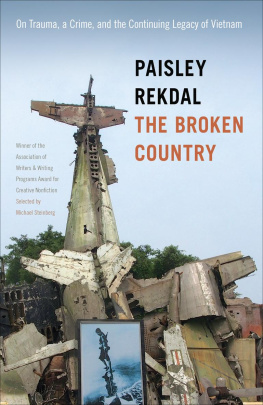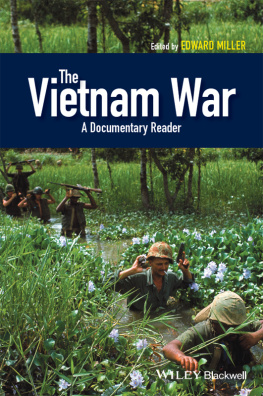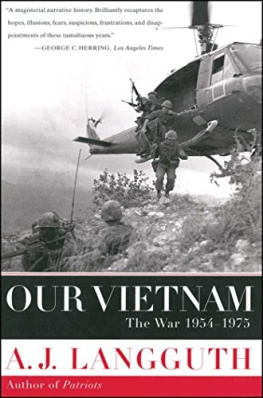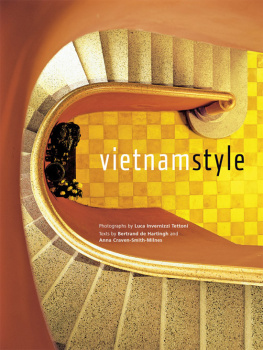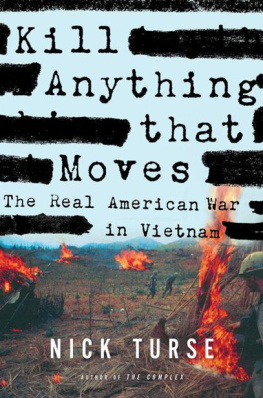THE BROKEN COUNTRY
THE
BROKEN
COUNTRY
On Trauma,
a Crime, and the
Continuing Legacy
of Vietnam
Paisley Rekdal
2017 by the University of Georgia Press
Athens, Georgia 30602
www.ugapress.org
All rights reserved
Designed by Erin Kirk New
Set in 10 on 15 Chapparal
Printed and bound by Thomson-Shore, Inc.
The paper in this book meets the guidelines for permanence and durability of the Committee on Production Guidelines for Book Longevity of the Council on Library Resources.
Most University of Georgia Press titles are available from popular e-book vendors.
Printed in the United States of America
21 20 19 18 17 C 5 4 3 2 1
Library of Congress Control Number: 2017947226
ISBN: 9780820351179 (paperback)
ISBN: 9780820351186 (ebook)
For my father, my uncles, and all those touched by war
ACKNOWLEDGMENTS
Any book is supported by a cast of dozens: in this case, it was closer to a cast of hundreds. First, thanks to Michael Steinberg and Thomas Larson for reading and selecting the book for the AWP Prize for Creative Nonfiction, and to all the editors, designers, copyeditors, and publicists at the University of Georgia Press for ushering it into the world, specifically Thomas Roche and Dorine Jennette for their tremendous help in fine-tuning the manuscript. Thanks to Mark Schwartz for pulling all the many trial dates for Kiet Thanh Ly, and for his legal help in interpreting some of the particulars of Lys case. Thanks to Jensen Private Investigations. Thanks to Mimi Khc, Lawrence-Minh Bi Davis, and the Asian American Literary Review for publishing a section of the book in their issue devoted to Asian American mental health issues. Thanks to Ellen Umansky for publishing another short section as a feature essay on the Poetry Foundation website. Thanks also to Blackbird and its editors for publishing the first chapter. Enormous thanks to Vincent Cheng, Melanie Rae Thon, and Emma Parry for giving early, or late, reads of the manuscript and for offering sound criticism, smart edits, and excellent advice.
Thanks to the many people I spoke to about this project who generously offered me their contacts, insights, stories, and time: Keltin Barney, Tim DeJulis, Mike DeJulis, Doug Duncan, Susanne Gipson, Mai-Linh Hong, Keven Lee, Trinh Mai, Jeff Nay, Cuong Nguyen, Diana Khoi Nguyen, Linh Nguyen, Duoc Pham, Diana Phuong, Amie Rosenberg, and Plum Schultz. Thanks to my colleagues in the Asia Center, in particular Winston Kyan and Wesley Sasaki-Uemura for their suggestions, personal and theoretical perspectives, and encouragement. Thanks, too, to Gregory Smoak, Vicky Newman, and the American West Center, for sharing with me the oral histories of Vietnam War veterans and Southeast Asian refugees found in its Saving the Legacy: An Oral History of Utahs Veterans Archive. Thanks to Jennifer Chang for her insights and contacts. And thanks also to colleagues and friends Jenny Andrus and Casey Boyle, who sent me in the direction of investigating violence and rhetoric.
Enormous thanks for the financial and creative support offered me by the Amy Lowell Poetry Travelling Scholarship, the John Simon Guggenheim Memorial Foundation, the University of Utah, and the University of Utah University Research Committee. Without the support and time granted me by these institutions, it is doubtful I could have even considered writing this book, let alone transcribed the hours of interviews.
Thanks to my ever-supporting and ever-patient husband, Sean Myles, who, without complaint, got take-out, walked the dog, and gave me the hours alone to write this book.
Finally, thanks to my father, Thomas Rekdal, my uncle Kingsley Kan, my cousin Jonathan Kan, and all of the many other men in my family who have served our country. This book is for them.
THE BROKEN COUNTRYIt is early afternoon in late April, and Keltin Barney is walking across a parking lot toward the glassed entrance of Smiths Marketplace. Keltin, a thirty-year-old undergraduate at the University of Utah, is running an errand for his girlfriend, Elizabeth, who has tasked him with buying two pairs of bicycle tire inserts and a storage unit lock. Located between the university where Keltin studies English and downtown Salt Lake City, the Smiths that Keltin has chosen is the citys most popular megastore, selling everything from electronics to sushi, cheap produce to childrens shoes. The store is full today, and customers flow steadily through the parking lot: mothers with angry toddlers, groups of teens, young men and women off work from a nearby construction site, the occasional temporarily flush panhandler. On the stores grassy parking strip, several feet from the entrance, a homeless man sits cross-legged, a Smiths grocery cart beside him stacked with garbage sacks of clothing, a cardboard sign in his hand that reads, Veteran. Please help.
The late afternoon sun is fierce. The cool noon temperature has slowly heated up under a thick blanket of clouds that traps the sun but blocks any breeze, turning the air into a muggy broth. Salt Lake is forty-three hundred feet above sea level: the citys thin air and intense sun mean that even on a mildly warm day, a person can begin to feel slow roasted. Keltin is fair skinned and strawberry blond. He has lashes so pale they look white against his blue eyes, and his skin has already begun to pink. He squints into the glare off the rows of car windshields, the glass that lines the entrance to the store. To his right, a line of cars glides through the Wendys drive-through. He has just reached the entrance to the store when he realizes hes forgotten the list Elizabeth drew up for him. Unsure what size tubes to purchase, he takes out his phone, dials his girlfriend, and walks back to his car.
It isnt until hes reaching for the list on the passenger seat that he hears a mans voice behind him say, Hey. Keltin straightens, turns, and sees an Asian man around his age wearing a nubbed wool sweater and three thin coats. The mans face is impassive, his dark eyes blank as a sharks, but his hair is stiff with grease and dust, the browned skin of his hands seamed with dirt. Keltin has just registered the oddnessthree jackets and a sweater at the end of April?when he feels the stranger shove him, pushing hard at the base of his sternum.
Only the stranger hasnt pushed Keltin. Blood has begun to pump from Keltins chest, darkening his shirt and running down his arms, soaking his pants. Keltin cant feel any pain, but the blood is warm and pulsing, and as the stranger jumps toward him, he begins to run. He leaps backward, scuttling behind his open car door to put something between him and this stranger, but the man has begun swinging his fist wildly at Keltin: at his back and sides, at his left arm. Something flashes in the mans fist. Keltin shouts in surprise, blood rushing in a thick gush from his left arm, until somehow hes away from his attacker, half-dashing, half-stumbling toward the glass entrance of the store.
The man is chasing him, or not; Keltin isnt sure. Hes focused on the entrance to Smiths: he wants to get someones attention, to disappear into the crowd. But though the parking lot is full of shoppers, no one has stepped forward to help, shocked or terrified as they are by Keltins incoherent shouts, which is when he realizes hes still holding his cell phone. His girlfriend, Elizabeth, has heard everything, though she doesnt understand what shes hearing.

